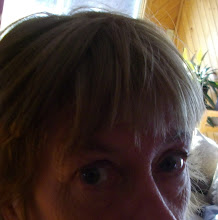
A fascinating article from Jonah Lehrer in Wired Magazine.
~~~~
A revolution in the science of social networks began with a stash of old papers found in a storeroom in Framingham, Massachusetts. They were the personal records of 5,124 male and female subjects from the Framingham Heart Study. Started in 1948, the ongoing project has revealed many of the risk factors associated with cardiovascular disease, including smoking and hypertension.
In 2003, Nicholas Christakis, a social scientist and internist at Harvard, and James Fowler, a political scientist at UC San Diego, began searching through the Framingham data. But they didn't care about LDL cholesterol or enlarged left ventricles. Rather, they were drawn to a clerical quirk: the original Framingham researchers had decided to note each participant's close friends, colleagues and family members.
But what, you might wonder, does this have to do with modern social networking vehicles like Facebook? Actually quite a lot, as the authors discovered to their amazement. And although these two scientists are fascinated by the online world, their central research tool remains those handwritten papers salvaged from the Framingham Heart Study.
By studying Framingham as an interconnected network rather than a mass of individuals, Christakis and Fowler made some remarkable discoveries about the power of social networks to influence individual behavior.
More recently Christakis and Fowler have begun to study the variables, such as genetics, that determine a person's place within a social network - whether in the centre or on the fringe - but they emphasize that there's no ideal social location. During a flu epidemic, the periphery is the safest place since people with fewer connections are less exposed to the virus. But being on the fringe also reduces access to resources, which radiate from the centre. Networks transmit the stuff of life - from happiness to HIV - so evolution has generated a diversity of personality traits, which take advantage of different positions within the group. According to Christakis and Fowler, there is no single solution to the problem of other people. Individual variation is a crucial element of every stable community, from the Aboriginal people of Australia to the avatars of Second Life.
And because we're social primates, such communities are essential. When we're cut off from our network, we slip into a spiral of loneliness and despair, which severely affects our health. "Your friends might make you sick and cause you to gain weight," Christakis says, "but they're also a source of tremendous happiness. When it comes to social networks, the positives outweigh the negatives. That's why networks are everywhere."
People, in other words, need people: we are the glue holding ourselves together.
~~~~
Jonah Lehrer is a contributing editor to US Wired.
~~~~
Friday, December 11, 2009
Buddy System
Subscribe to:
Post Comments (Atom)

No comments:
Post a Comment